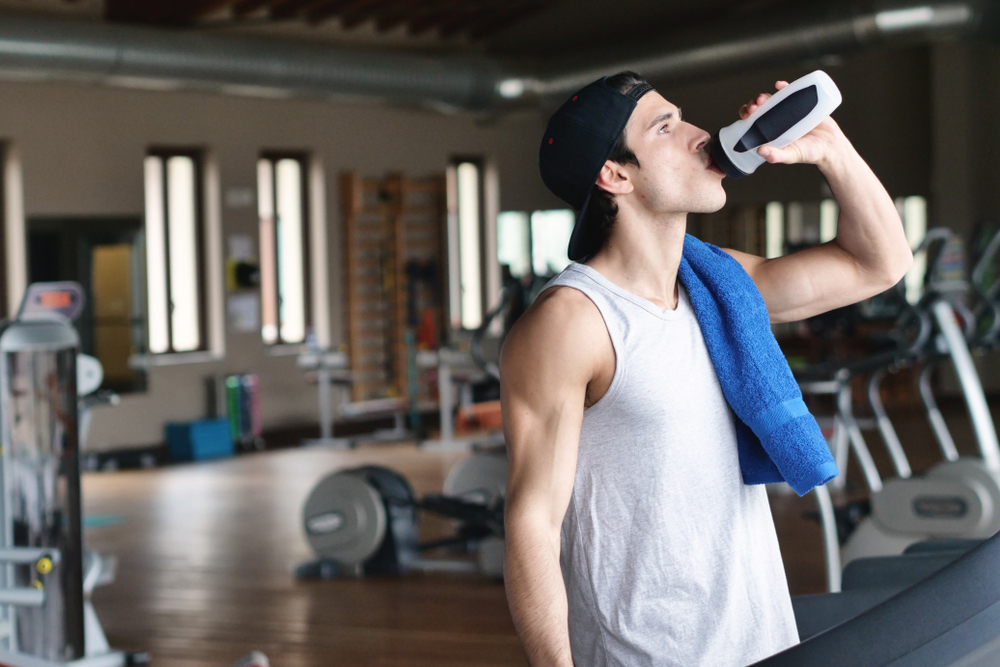The health and fitness industry has continued to develop innovations that aid people in achieving their body goals. One example is compression clothing, such as tights and sleeves, which provide physical and mental benefits for both professional athletes and regular gym-goers.
Compression sleeves are the shorter version of compression tights or leggings. With this type of apparel, you can target the areas that you want to support, like your elbows, knees, or ankles, without having to endure the heat that entails wearing full-length clothing.
Here are a few ways on how compression sleeves can physically and mentally prepare you for your fitness goals:
- Prevent Muscle Soreness and Swelling
Most popular compression sleeves are effective at decreasing the likelihood of muscle soreness and swelling after a workout. The snug fit of the clothing item offers the necessary support for your body when doing rigorous and prolonged exercises, like running and high-intensity regimens.
Compression sleeves promote quicker blood circulation, which aids in recovery after your muscles have been stretched to their limits. They help to reduce inflammation and alleviate soreness even after your body has gone through particularly strenuous activity.
Here are some tips to improve muscle soreness and swelling:
- Keep Exercising – It may seem like pure torture to continue with the routine that your trainer gave you a day after going through it once, but pressing on with the exercise can help you recover faster from your sore spots. Think of the initial pain as your muscles getting warmed up and prepped for better movement in the future.
- Drink Lots of Water – Staying hydrated is crucial to your health, especially if you’re doing strenuous activities. You have to keep your fluid levels high because this can help lessen inflammation, aid in expelling waste and facilitate the delivery of nutrients to your muscles.
- Eat After Going to the Gym – It may sound contrary, especially if your goal is to lose weight. However, eating a balanced meal after an intense workout can give your body the nutrients that it needs for recovery. Focus on eating protein and carbs since this helps rebuild and replenish fuel for your muscles, respectively.
- Learn How to Do SMR – Self-myofascial release or SMR is the process of releasing tension in your body by using tools such as foam rollers and massage sticks. The technique and equipment move the fluids in your muscles and tissues after exercise.
- Get Adequate Sleep – Make sure that you have enough rest if you did an intense regimen earlier in the day. Sleep is a crucial aspect of your body’s recovery process, so you have to make it a priority if you want to stay healthy and fit. Thankfully, exercising helps with this, because the more you do it, the more energy you burn which leads to more sleep for recharging your body. This is perfect for people who aren’t getting enough sleep or are suffering from insomnia.
Aside from strengthening your body, exercise has been known to alleviate depression and anxiety by triggering the release of endorphins. These biochemicals enhance your sense of well-being and lifts your mood. This encourages you to keep exercising and promotes a positive view of self. Not only will you feel like you’re improving how you look, but the confidence you’ll gain will also likely carry over to your work and social life.
- Reduce Strain Risks
With the support that compression sleeves provide to various parts of your body, you can mitigate the strain that may entail your workout. This clothing item is useful for both beginners and gym enthusiasts to minimize the risk of sustaining an injury before or after exercising.
Compression sleeves can prevent the accidental dislocation of your muscles or nerves. Moreover, even if you’ve already strained your muscles, the constant and gentle pressure exerted on it can reduce further swelling and soreness.
Wearing compression sleeves while exercising not only protects your muscles from swelling, but also prevents you from dreading unpleasant sore spots the next day. They also lower the chances that you will injure yourself while working out. This is a major boost for people who might be suffering from injury trauma, as it eases their anxiety of re-straining their injury. With compression sleeves, athletes can work out with full confidence going into their next training.
- Protect Your Skin
Aside from the compression that it provides, this exercise accessory also doubles as a barrier for your skin against bruises and wounds. Wearing this when doing contact sports can lessen the friction that you experience in case you fall or skid across the floor.
- Improve Performance
Exercising has been found to improve your cognitive ability. Cardiovascular exercise, in particular, facilitates neurogenesis, which is the creation of new neuronal cells. One benefit of the process is strengthening the hippocampus, which plays a significant role in functions like memory and learning.
Additionally, sports and other forms of activities not only involve the strength of your body, but it also entails the adeptness of your mind. Compression sleeves offer both physical and mental benefits because it promotes blood circulation, which helps provide your brain with the nutrients it needs.
- Boost Confidence
Knowing that you have ample support for your muscles can make you more confident about completing your reps in the gym. Compression sleeves facilitate movement and reduce the risk of strains. So you never have to worry about sustaining an injury.
Conclusion
Compression sleeves provide both physical and mental benefits to your body, which aid in your fitness goals. When you wear them to the gym or court, you prevent the possibility of muscle soreness and swelling after working out.
You also reduce the risk of straining your body and protect your skin from bruises and wounds. Moreover, because exercise has long been known to provide significant advantages to your mental health, this exercise accessory helps improve your cognitive performance and boost your confidence.
View more here.
Credit- What is Psychology (WIP). Published by- Dr. Sabiha : www.drsabiha.blogspot.com


